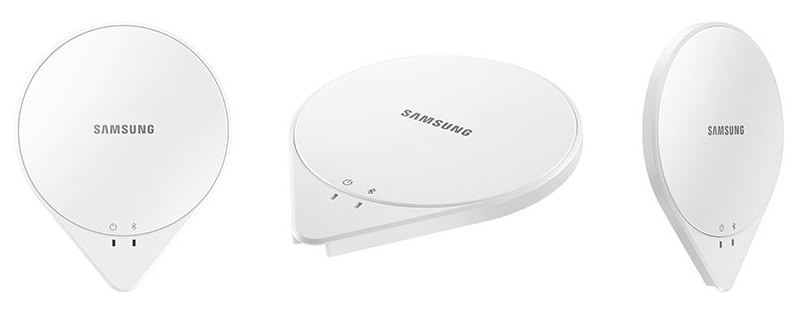Samsung has launched a new “Internet of Things” (IoT) healthcare device designed to improve your sleep.
At the IFA consumer technology event in Berlin, Samsung unveiled the cylindrical device that connects with your TV, air conditioning, music system, and other home appliances — all managed through a mobile app. “It’s connected to your life,” the company says. The Korean tech titan also launched a SmartThings Hub to manage home IoT systems today, which ties into these individual product rollouts.
The SleepSense is basically a contactless sensor that’s placed under your pillow at night to analyze your sleep patterns. It can also turn off your TV when it senses you’re asleep, or turn your coffee machine on when it reckons you’re awake in the morning.
The SleepSense analyses your heart and respiratory rates, as well as your movements in bed, to serve up sleep reports and analytics, alongside recommendations on how you can improve your sleep.
June 5th: The AI Audit in NYC
Join us next week in NYC to engage with top executive leaders, delving into strategies for auditing AI models to ensure fairness, optimal performance, and ethical compliance across diverse organizations. Secure your attendance for this exclusive invite-only event.
The sleep score is based on seven core metrics: sleep-efficiency, total time asleep, time it took to fall asleep, how often you woke up, how often you got out of bed, percentage of time in deep sleep, and percentage of time in REM (rapid eye movement).
The SleepSense app will also map this data against other people of a similar age, to give you an idea of how healthy you are.
It’s widely understood that poor sleep can lead to conditions more serious than grumpiness or lack of energy — over time it can also lead to obesity, diabetes, and heart disease. While many companies have launched consumer-focused sleep-tracking devices in the past, these typically only tell you how many hours you sleep, and sometimes the quality of that sleep. This can be useful data, but isolated from the rest of your activities, it has limited use.
With the burgeoning Internet of Things economy, where personal gadgets and home appliances can talk to each other, Samsung is looking to tie together these numerous strands to build a more holistic picture. However, in its presentation at IFA, the company made no mention of how it plans to tie this data in with activities outside the home — those walks to work, runs around the park, and trips to the gym. We can only assume there will be a way to integrate with third-party activity tracking tools, perhaps with RunKeeper, Fitbit, or Withings, though details of any such tie-ups have not been revealed.
Samsung has also yet to announce a price for the SleepSense — we’ll update here when details are announced.



